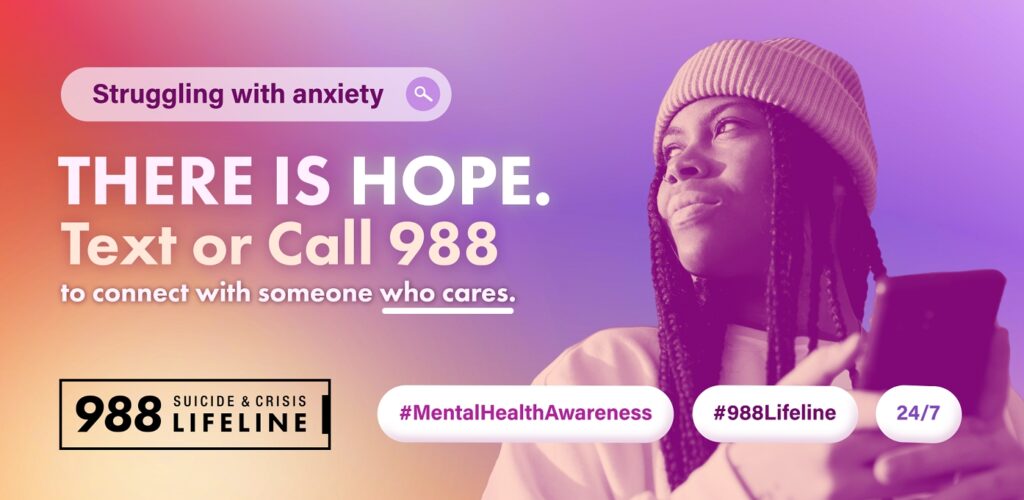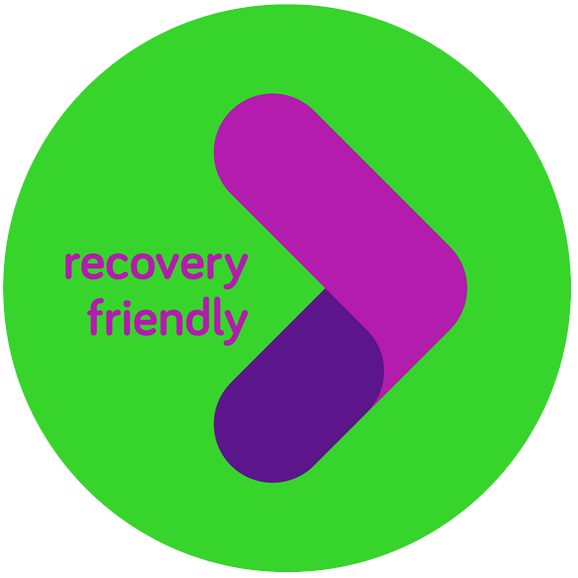Behavioral health and mental health challenges impact every community – urban, suburban, and rural, east, west, north, and south. There are no geographic boundaries or political party lines. Across the country, Governors are leading the efforts to address the behavioral health needs of the residents of their states and territories, including addressing mental health needs and substance use disorders. In 2024 State of the State or Territory addresses, Governors identified behavioral and mental health as top priorities. In their addresses, Governors’ remarks focused on the different programmatic and legislative initiatives they are leading at the state level to implement behavioral and mental health programs and policies. In particular, many Governors’ remarks focused on youth mental health policies.
Mental Health Services
- Guam Governor Lou Leon Guerrero: “If you have a child with autism, Behavioral Health is partnering with community organizations to provide evidence-based parent training and Applied Behavioral Analysis services for children with autism spectrum disorders. With Child Care Development Funds, we are expanding our ability to provide these valuable services, a gold standard of care for the autism community. Now we can help keep families here instead of forcing them off island.”
- Idaho Governor Brad Little: “Our children need our protection in all aspects of their lives, including their personal lives. We know young people today face greater levels of distress and isolation than any other generation before them. To help keep our children well, IDAHO WORKS doubles the funding for school advisors. These are the professionals on the front lines in talking to students about their futures as well as their current personal struggles. IDAHO WORKS also proposes a new Statewide Student Behavioral Health Initiative for additional suicide prevention.”
- New York Governor Kathy Hochul: “Mental illness doesn’t discriminate. It touches the rich and the poor, it reaches into schools and senior centers with the same severity. Even our first responders are suffering. Their experiences on the job expose them to horrific circumstances, and the suicide rates among law enforcement are about 60% higher than the rest of the population. And too often, the people involved in violent incidences on our streets, on our subways are victims themselves, victims of a system that failed to provide them the treatment they need. High-quality care must be widely available, accessible, and affordable.”
- Tennessee Governor Bill Lee: “The funds from this year’s shared savings will allow us to again invest in mental health – another challenge that is prevalent, not just in our state, but across the country. Nearly four-in-ten Tennesseans report symptoms of anxiety or depression. Drug and opioid overdoses remain an enormous challenge. We’ve done a lot of work in the last five years to boost mental health resources across our state. This year, we’re investing more than $100 million over five years, from the shared savings, in behavioral health and substance abuse support in Tennessee.”
- Virginia Governor Glenn Youngkin: “The Road to Opportunity for many Virginians will be cleared by accelerating the transformation of our behavioral health system — a transformation desperately needed given the clear behavioral health crisis that we face. And while this is a three- year journey, we just celebrated the one-year anniversary of our ‘Right Help, Right Now’ transformation. This time last year, we’d hoped to have two new emergency room alternatives, and today we have eight, and there’s more to come. In the month of November alone, we received over 8,300 calls on the 988 line. And Virginia is among the top in the nation in answering those calls quickly … The transformation is working, but we need to do more.”
- Wisconsin Governor Tony Evers: “I’m creating an Interagency Council on Mental Health and directing Wisconsin state agencies to work together to reduce barriers and address gaps in mental health services. We’re going to develop a statewide Mental Health Action Plan to address the root causes of our mental health crisis, increase awareness and reduce stigma, and build capacity for us to expand access to mental health services statewide.”
As Governors have been working on ways to improve mental health, especially for the youngest residents, NGA has worked closely with Governors’ offices on programs and policies designed to strengthen youth mental health, especially through the 2022-2023 NGA Chair’s Initiative on Strengthening Youth Mental Health. As part of the initiative, Governors held meetings throughout the country, and in July 2023, former NGA Chair New Jersey Governor Phil Murphy unveiled Strengthening Youth Mental Health: A Governor’s Playbook. The written Playbook has served as a tool for states to further impactful policy solutions that strengthen youth mental health. Many of the policy ideas detailed in the Playbook are similar to programs Governors noted during their 2024 State of the State or Territory addresses.

Addressing Substance Use Disorders
The Substance Abuse and Mental Health Services Administration (SAMHSA) survey results from 2021 find “9.2 million people 12 and older misused opioids in the past year,” and “94% of people aged 12 or older with a substance use disorder did not receive any treatment.” State surveys show similar results, underscoring the increasing number of Americans who are not receiving adequate care for mental health conditions and problematic relationships with substances. This situation creates unique challenges for individuals, families, nonprofits and businesses as well as states and territories. Governors’ 2024 State of the State or Territory addresses highlighted several policies and programs states are leading to address substance use disorders.
- Arizona Governor Katie Hobbs: “I’m calling on the Legislature to strengthen our state’s standards for sober living homes and long-term care facilities, and significantly increase penalties for bad actors … Protecting Arizonans in long-term care and sober living facilities shouldn’t be a partisan issue.”
- Iowa Governor Kim Reynolds: “We’ve made significant progress over the last several years, investing millions in behavioral health providers, creating the state’s first children’s mental health system, and funding numerous impactful projects around the state. One of those projects will soon mark a pivotal moment for Iowa’s youth. This year YSS, a youth-centered non-profit, will open Ember Recovery Campus, a groundbreaking new facility offering 70 behavioral-health beds that will focus on emergency shelter, crisis stabilization, and addiction treatment. This project, the first of its kind in Iowa, represents the largest public private investment in children’s behavioral health in our history and is a model for our state.”
- Kentucky Governor Andy Beshear: “We have worked hard to boost access to treatment while also reducing the stigma around asking for help. And in 2022, we saw the first reduction in overdose deaths since 2018 – we were one of only eight states to record a decrease. Combatting this epidemic takes commitment – a commitment we have embraced by increasing treatment beds by over 50% in the last four years – and I am proud to say that we now have the more treatment beds per capita than any other state in the country. This is thanks to so many who are committed to helping others recover.”

- New Hampshire Governor Chris Sununu: “Unfortunately, too often our mental health efforts become tied into the opioid and fentanyl crisis. It continues to affect every community not only in New Hampshire, but across the entire country. Now thanks to the very successful Doorway Program we implemented in 2019 New Hampshire citizens have access to wraparound services and options of care across the state. And New Hampshire created the Recovery Friendly Workplace program (which has gone national), allowing nearly 100,000 citizens to work for a Recovery Friendly Workplace. New Hampshire is now bucking the unfortunate national trend of skyrocketing overdose deaths. The rest of the country is up almost 60% in drug related deaths since 2018, NH’s numbers are down. But that’s no solace to the approximately 400 families that will lose a loved one this year in this crisis. More always has to be done.”
- North Dakota Governor Doug Burgum: “We’ve made great strides through access and services to people facing addiction. We know that our state’s behavioral health providers are increasingly challenged by workforce shortages. So in addition to the peer support specialist program we’re working with in the coming months, we’re going to work with the university leaders, the health care system, private sector to help solve this critical issue.”
- Washington Governor Jay Inslee: “We propose $64 million in new spending to fight against opioids and fentanyl. We’re going to invest in education, community health hubs, overdose prevention, treatment access, and recovery supports.”
Since 2012, the National Governors Association (NGA) Center for Best Practices has supported states in their efforts to help prevent and treat substance use disorders and overdose. The Behavioral Health team leads several initiatives that address substance use and related health consequences, including promoting overdose prevention initiatives. The team also supports broader efforts to promote mental health and well-being.
NGA’s work with Governors’ offices includes hosting a monthly virtual meeting of the Opioid State Action Network. NGA also partners with state and territories on numerous behavioral health projects, such as a six month project with New Mexico and West Virginia designed to strengthen state responses to SUD through a trauma-informed policy and practice lens. NGA’s support for states implementing overdose prevention initiatives includes the Overdose Prevention Across the Continuum Policy Academy and the Learning Collaborative on Expanding the Role of EMS to Prevent Overdose.
Additionally, NGA released a roadmap to help support Governors and state officials in developing policy solutions to address unprecedented opioid overdose rates. Titled “Implementing Best Practices Across the Continuum of Care to Prevent Overdose,” the roadmap outlines concrete solutions across the full spectrum of health services: foundations, prevention, harm reduction, treatment and recovery. Developed in coordination with the O’Neill Institute at Georgetown University Law Center, the roadmap is based on the contributions of more than 30 subject matter experts and 20 states and territories — providing Governors with 17 specific, actionable recommendations to prevent overdose across five pillars of the Substance Use Disorder Continuum of Care. The roadmap highlights 10 states’ initiatives that exemplify best practices and innovative strategies in overdose prevention.
Learn more about the behavioral health priorities Governors outlined in their 2024 State of the State or Territory addresses here, and visit NGA’s behavioral health page to learn more about the work NGA’s behavioral health team is doing with Governors’ offices.













